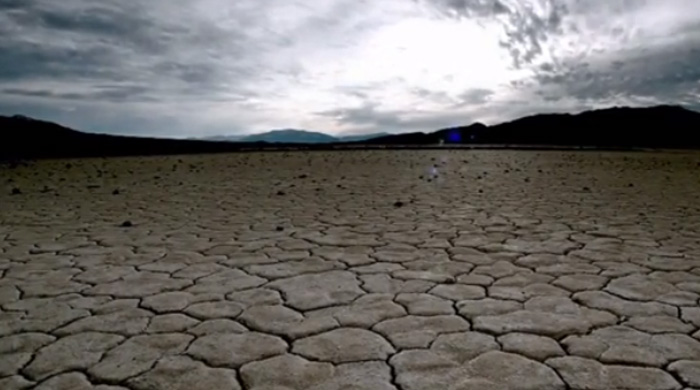NASA, Columbia University, And Cornell University Study Predicts Mega Drought In US

A combined study [1] from NASA, Columbia University, and Cornell University predicted a mega-drought will occur in the Southwest and Great Plains regions. The predictions overshadowed the drought presently occurring in California, and the predicted mega-drought will occur over the next 35 years. It will last longer and be more severe than any other droughts that have occurred in the last 1000 years.
The predictions were made possible by analyzing the patterns of drought, tree rings, and soil moisture samples from the Medieval-era droughts to the 21st century droughts. The research showed that natural patterns of drought are now being amplified and extended, because of the excessive greenhouse gases believed released into the environment. This excessive production of greenhouse gases is caused by humans and is pushing climate change.
Greenhouse gases absorb infrared radiation from the sun and trap the heat in the atmosphere. The most important greenhouses gases that are added at an unnatural rate to the environment are carbon dioxide, methane, and nitrous oxide. Other gases like those found in aerosols also play in climate change.
One of the greatest offenders of production of greenhouse gases is the every growing meat production industry, not only in the U.S. but also across the world. The high amounts of greenhouse gases being released into the environment along with the high consumption of freshwater plays a great part in defining the predicted mega-drought.
…the livestock sector accounts for 9 per cent of CO2 deriving from human-related activities, but produces a much larger share of even more harmful greenhouse gases. It generates 65 per cent of human-related nitrous oxide, which has 296 times the Global Warming Potential (GWP) of CO2. Most of this comes from manure.
And it accounts for respectively 37 per cent of all human-induced methane (23 times as warming as CO2), which is largely produced by the digestive system of ruminants, and 64 per cent of ammonia, which contributes significantly to acid rain.
With increased prosperity, people are consuming more meat and dairy products every year, the report notes. Global meat production is projected to more than double from 229 million tonnes in 1999/2001 to 465 million tonnes in 2050, while milk output is set to climb from 580 to 1043 million tonnes.
The global livestock sector is growing faster than any other agricultural sub-sector. It provides livelihoods to about 1.3 billion people and contributes about 40 per cent to global agricultural output. For many poor farmers in developing countries livestock are also a source of renewable energy for draft and an essential source of organic fertilizer for their crops.[2]
The United Nations published a report indicating agriculture, particularly meat and dairy products, accounts for 70% of global freshwater consumption, 38% of the total land use and 14% of the world’s man-made greenhouse gas emissions.[3]
The 14% greenhouse gases added to the environment from meat and dairy production only accounts for the direct addition of greenhouses. Meat production is responsible for alarming rates of deforestation across the world. Deforestation is needed to clear land for grazing animals and for clearing land to plant crops to feed factory farmed animals.
Deforestation accounts for 17% of the greenhouse gas emissions. Energy supply accounts for 26% and transport accounts for 13% of greenhouses made from human industry, and a chunk of the percentage is involved in supplying power for meat and dairy production and for transporting meat and dairy products.
Though the natural patterns of drought do exist, human intervention is definitely making it worst than it needs to be. The United Nations says lesser consumption of animal products and a move towards a whole food plant-based diet is necessary to save the world from the worst impacts of climate change.
[1] Unprecedented 21st century drought risk in the American Southwest and Central Plains
[2] Rearing cattle produces more greenhouse gases than driving cars, UN report warns
[3] Assessing the Environmental Impacts of Consumption and Production







